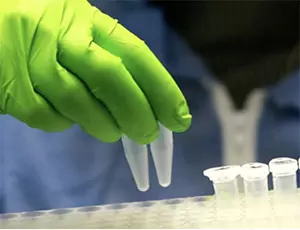The Vigie Covid-19 solution can now track the presence of the Omicron variant in wastewater with faster detection to monitor the progress of the epidemic.
Currently used in addition to existing clinical data, the presence of Sars-Cov-2 in wastewater could become a new indicator to help manage the pandemic. On the initiative of the French Ministries of Health and Ecological Transition, the national reference laboratory (LNR) has just launched an effort to standardise and consolidate surveillance methods.
Veolia was one of the first players to launch a solution for detecting the virus in wastewater. Since its launch in September 2020, Veolia, the IPMC (CNRS-Université Côte d'Azur), the start-up IAGE and the Battalion des marins pompiers de Marseille (BMPM) continue to collaborate to optimize it.
Today Vigie Covid-19 is the most operational method in Europe for quantifying SARS-CoV-2 in wastewater. Using PCR screening and sequencing techniques, it identifies the presence of virus mutations and assesses their concentrations.
After the alpha, beta, gamma and delta variants of SARS-CoV-2, Vigie Covid-19 has been detecting and quantifying the Omicron variant in wastewater for the past few days, following its last campaign in December on a dozen municipal and industrial sites in Europe. This campaign made it possible to demonstrate significant advances in the implementation of the system.
Now, it takes only two weeks to launch a monitoring campaign for a new variant, a few hours to a day to PCR screen a sample, and less than a day for sequencing. The results can be used as soon as the new variant arises in a region.
With the success of our third campaign that demonstrates the effectiveness of Vigie Covid-19, we are now ready, in agreement with our partners, to make it available to a greater number of stakeholders. A large-scale roll-out would make it possible, by tightening up the territorial network, to cross-reference these data with those of local health authorities. Our method can thus constitute an excellent complement to clinical trials in the fight against the spread of the pandemic, by providing readable information and dynamics consistent with the incidence rates reported by health authorities in Europe.




